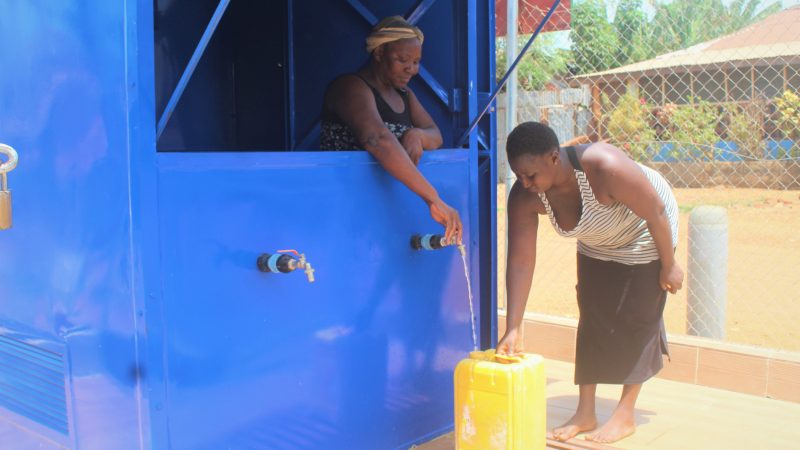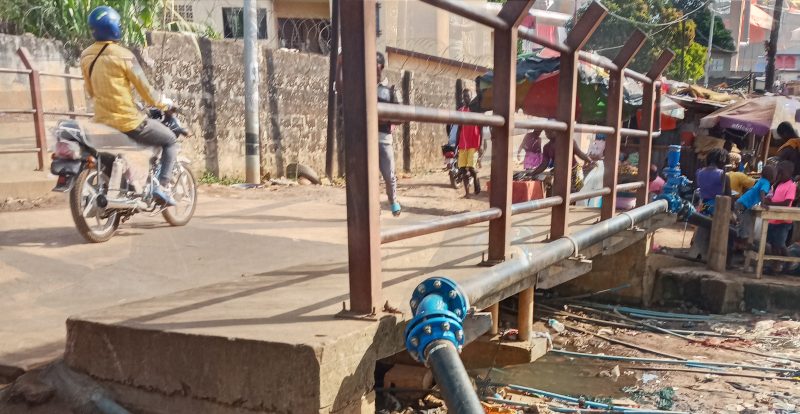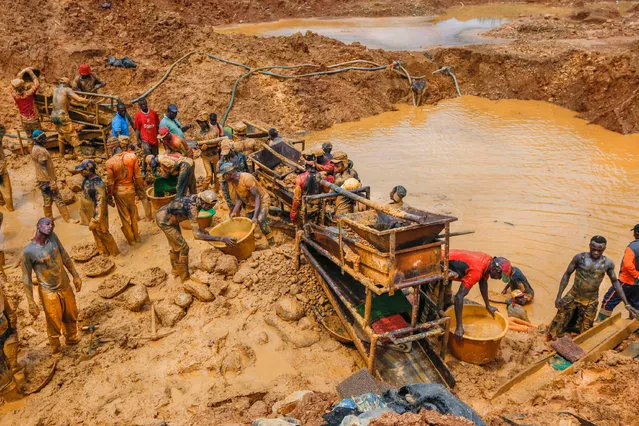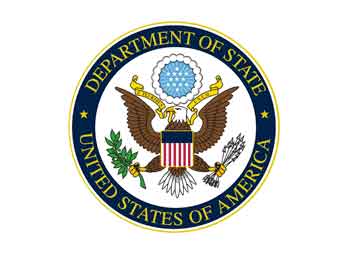
MCC’s Sierra Leone Threshold Program activities included installing new water pipes and water distribution kiosks, like the one pictured above, in the capital city of Freetown.
MCC recently closed the $44.4 million Sierra Leone Threshold Program focused on institutional strengthening and policy reform in the energy, water, and regulatory sectors. One of the threshold’s major activities was a District Metering Area (DMA) and water kiosk installation pilot program, implemented with the Guma Valley Water Company (GVWC), to improve water access. As the pilot involved installing new water pipes and distribution kiosks in densely populated neighborhoods of Freetown, some households and businesses had to relocate to make way for the new infrastructure.
In accordance with MCC’s Environmental Guidelines and IFC Performance Standard 5 on Land Acquisition and Involuntary Resettlement, resettlement refers to situations where people face physical relocation, such as loss of shelter or a home, and economic displacement, such as loss of a job or income because of projects or investments affecting how land is used in a specific area. The threshold team held consultations with key stakeholders in Sierra Leone, including government ministries and local communities to understand resettlement implications on the threshold program. The team found that there was no existing legislation or policy framework on resettlement in Sierra Leone. Historically, when people were required to relocate for projects, the situation was often handled in an inconsistent and haphazard way, with some people being forced out of their homes with no place to go. While the initial plan was to support a resettlement framework for threshold program-related infrastructure, the team soon realized it would be more effective to support the government in developing a nationwide policy. MCC also supported the government to develop an implementation plan for the policy, identifying the ministry that will oversee the policy’s implementation, what kind of staffing and support they would need, and other practicalities.
According to Ansumana Swarray, Water Sector Project Director of the Millennium Challenge Coordinating Unit (MCCU) (MCC’s local partner): “We wanted a policy that is integrated, useful and applicable to all the sectors in Sierra Leone. Before this policy, different sectors developed and used different resettlement policy frameworks, which created some confusion and misunderstanding. For instance, if two or more sectors are working on different development issues, but in the same area, they would have to apply different policy frameworks. This was not helpful to the affected persons.”



